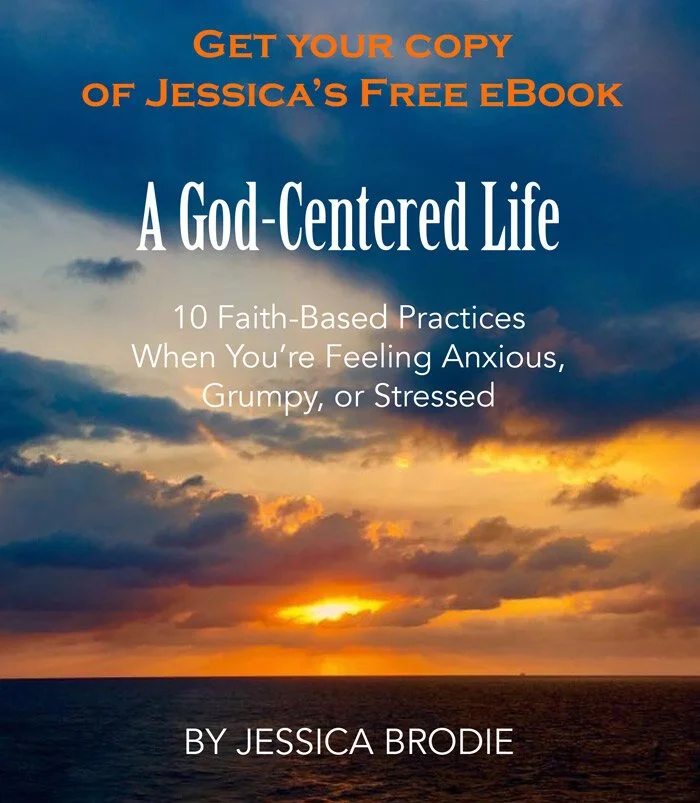On not wanting
By Jessica Brodie
I’m an avid reader, and by far I prefer to read fiction more than anything. The genre doesn’t matter too much, though my favorite tends to be contemporary literary or women’s fiction, with a splash of historical or fantasy thrown in.
For me, what matters is story. I’m a sucker for a good story that brings to life characters who become like friends to me, whose souls I feel like I know, and whose experiences become metaphors for issues in my own life or help me work out issues I don’t yet understand. I suppose that is why Jesus taught in parables. People relate to stories of commonplace situations, which drove home his points in ways simply explaining them could not. Stories give us context, help ideas come to life in interesting and often beautiful ways.
One of is my very favorite authors is Lisa Wingate, and I’ve read most everything she’s written. I tend to do that with authors whose voice and writing style I come to love (like Tosca Lee and Cindy K. Sproles). I lap up everything they’ve ever written, then wait eagerly until they write more.
Recently I reread one of Lisa’s novels, Beyond Summer, which features three characters all intersecting in a lower-income neighborhood outside Dallas, Texas. One is a recent high school graduate, a girl a bit on the spoiled side whose father recently fled the country to evade fraud prosecution; she, her stepmother, her off-kilter aunt, and her four young siblings are forced to figure out what to do next on their own, and they shelter temporarily in an unused home in that neighborhood. Another is a young mom who has purchased a home in that neighborhood but doesn’t yet know she’s being sucked into a predatory lending scheme. A third is a homeless woman named Sesay who watches the events of the neighborhood unfold even as she herself becomes involved.
Sesay is a fascinating character. She immigrated to America very young on a boat from another country, so young she doesn’t even know the name of her country, and her only relative died at sea. She’s spent her life in a labor trafficking network that she’s recently escaped, and now she makes her home behind houses, in a shed, or sometimes at the local mission.
It is Sesay’s words that have been pinballing through my brain for the last week, for she possesses a wisdom that is so set apart from this world, with its typical distractions and trappings and norms, that it is at once brilliant, simple, and the most Christlike of them all.
Sesay makes beautiful, tiny wooden carvings that she gives them to people as tokens of appreciation, and a neighborhood artist sells a few, then tries to give her money for them. But she won’t accept the money.
“Why not?” the man asks her. “You earned it. Isn’t there anything that you want?”
Sesay replies with something her grandfather once told her: “To want is to choose to be unhappy with what is.”
Ouch, and a resounding yes, all at once.
We all know from reading scripture that our minds are supposed to be set on the eternal, that we shouldn’t worry about the treasures of this earth but rather store up treasures for heaven, such as kindness and love and mercy and other things that are eternal. We are told countless times to beware a love of money, to beware putting anything or anyone above the Lord, for God is our top priority and we should have no other gods before him.
Yet try living in modern society without wanting anything, and you quickly see how difficult this can be.
Everywhere we go we are bombarded with enticements. Billboards encourage us to buy a particular car or eat at a certain restaurant. We might be desperate for a spouse, or a certain lifestyle or home, for fame and glory, for riches. I know people who have poured so much of their income into having just the right house and car and private school for their children that they have barely enough left over at the end of each month to spend on basics, and they run out of grocery money and have to buy things on credit just to survive. And forget about putting money into the collection plate at church. Statistics indicate only 37 percent of church members tithe regularly.
I think that’s one of the reasons I don’t really like shopping. I’ve always been more of an experience type person anyway. Give me a hike or a trip to a different city any day and I’m a happy woman. Stores just aren’t as interesting for me. Yet it happens to me, too. If I have to go out to a store to buy some item, maybe a birthday gift for someone, suddenly I see the array of items before me and my mind takes it all in. I began to crave and perhaps even covet those items. I start thinking about how perhaps I could use a new purse, or a new pair of shoes, and then I start to think about how my sunglasses are a little scratched up, and my cell phone is a few years old and not the newest model. I haven’t bought new dress pants for work since before the pandemic.
The proverbial Pandora’s box begins to crack open. I might start to list a few things I’d like to buy, maybe as gift suggestions for friends and family when they ask me, but something funny happens. I think I need nothing, but as soon as I start to list couple of wants, it seems to trigger a rush of desires, and suddenly I want everything. It’s spills over into my world like a tidal wave of discontentment.
At least for me, Sesay’s words are right, that “to want is to choose to be unhappy with what is.”
Finally I have to pull back and say, “No thanks.” My current phone and purse and jeans are fine as they are, thank you very much.
If you can afford it and you have the extra cash, there’s nothing wrong with buying material items, but be careful, for these are fleeting items that are temporarily and mean nothing in the big picture.
We shouldn’t get so caught up in wanting things that we use our available funds to purchase trivial items for ourselves instead of tithing or helping a neighbor in need. We shouldn’t get so caught up in wanting that our wants grow from a molehill into a mountain and suddenly they bloom larger than everything else and we are living deep in a mire of discontentment.
As for me, I choose contentment. I choose contentment with where I am right now, in this moment.
Today I have breath in my lungs. I have shoes on my feet and the ability to walk. I have kids to love and three cats and a dog who needs petting and a good job and a marriage that fills my heart. I am a child of God, and I am blessed, and I know where my future lies one day: in the kingdom of God.
I am happy in my contentment, and it is enough.
If you are in a place right now where you are wanting and striving for something you don’t have, I pray you meditate on Sesay’s words a bit. Are you wanting something to the point where are you’ve become unhappy with what is? Are your wants for the future eclipsing your present joy?
I invite you to join me, to be still and know that God is the Lord Almighty, and all our soul desires rest in him.
God bless you, my friends.
WANT TO HELP SPONSOR JESSICA BRODIE’S WRITING MINISTRY? CLICK HERE.
THANKS TO MY SPONSORS: MATT BRODIE, BRIAN CARMICHALL, AND BILLY ROBINSON.
SHARE TODAY’S BLOG ON SOCIAL MEDIA: CLICK HERE OR THE SOCIAL LINKS BELOW.


